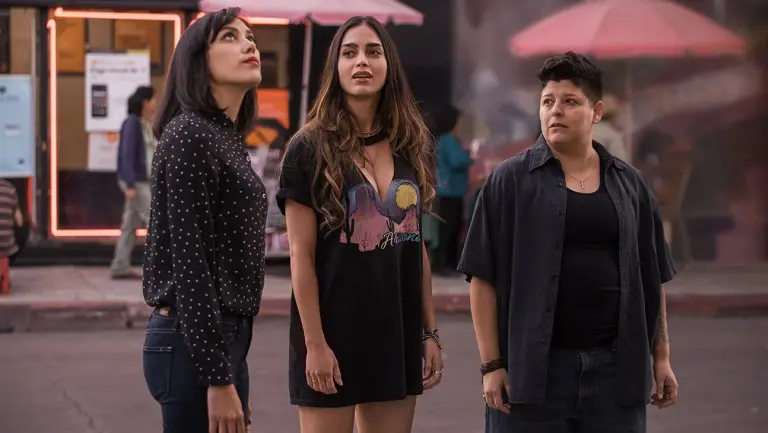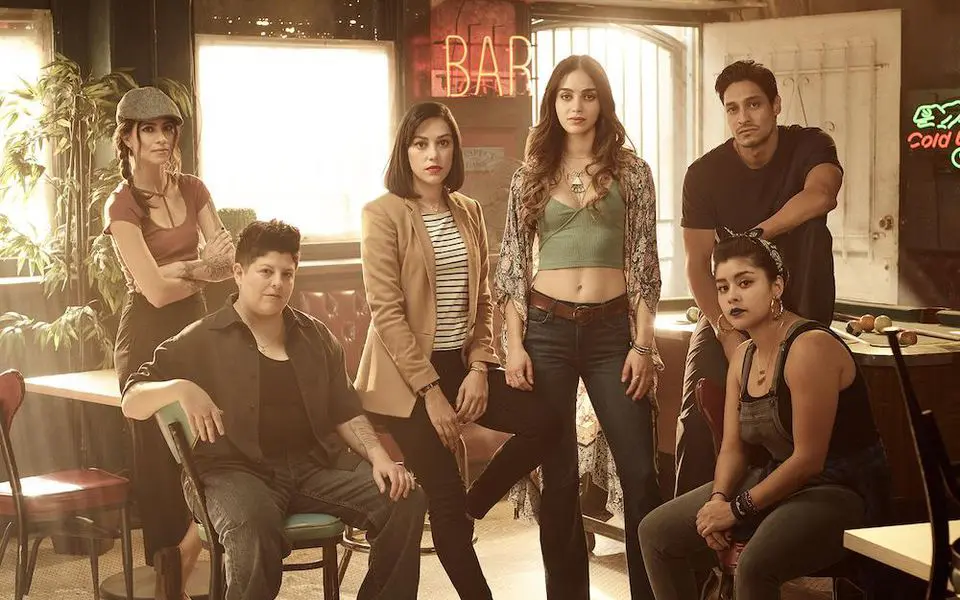Summary
One of last year’s best shows returns even better; funny, heartfelt and provocative, but with an even deeper sense of character.
This Vida Season 2 review is spoiler free. You can check out our thoughts on last season by clicking these words.
You might recall Tanya Saracho’s Vida as one of the best shows of last year; a challenging, provocative dramedy about two estranged sisters who returned to their old neighborhood in the wake of their mother’s death to discover that her namesake bar was in complete disrepair, she was married to a woman, and their old neighbors hate them. What followed was a sharp family drama about moving in, coming out, having lots of very explicit sex, and ultimately learning to appreciate where you come from, where you’re going, and who’s with you along the way.
Vida Season 2 is… well, more of that, really, since the story never concluded in the first place. And that’s far from a bad thing. Now with ten episodes rather than six, Vida Season 2 has more space to hone in on its central characters of Emma (Mishel Prada) and Lyn (Melissa Barrera) Hernandez and Vida’s widow, Eddy (Ser Anzoategui), and its still relevant social themes of togetherness, acceptance, and the gradual erasure of identity — sexual, racial, and otherwise.
These three still form the core of the show’s identity; the buttoned-up, careerist Emma still feels apart from the neighborhood and resentful of her mother having hypocritically excommunicated her for being gay; the carefree and irresponsible Lyn wants to find her own identity independently of the men she has used to define herself in the past; and Eddy is still the tireless traditionalist, more concerned with honoring Vida’s legacy and maintaining her bar’s status as a place of safety for the local LGBTQ community more so than anything else, including her own safety — she begins Vida Season 2 still hospitalized from a violent homophobic attack at the end of the previous season.

Through these various conflicting personalities, Vida Season 2 also deals with its underlying commentary on gentrification, immigration, cultural identity, sexual freedom, and coming-of-age, sometimes all at once through characters like the fiercely idealistic but hopelessly naive Marisol (Chelsea Rendon) and the smarmy property developer Nelson Herrera (Luis Bordonada). New additions to the cast include Baco (Raúl Castillo), a contractor with a crew of former cons with his own idea of what constitutes a traditionally Mexican identity (Emma, naturally, disagrees with his initial assessment) and a new love interest for Lyn, despite the lingering presence of Johnny (Carlos Miranda). Luckily, neither Lyn’s nor Johnny’s characters and relationship develops the way you think.
The reason all of this works so well in Vida Season 2 is much the same as it was before: The writing, credited to series creator, showrunner and head writer Tanya Saracho, continues to be smart, incisive, and complex. This isn’t just about checking off political buzzwords and making do; there’s a real sense of navigating the nature of family, both biological and surrogate, and figuring out how developing personal agency doesn’t have to come at the expense of others — a theme best highlighted through Lyn’s development from a carefree and careless girl to a complex and driven woman, which is there right from the jump and persists throughout.
A lot of this is only possible thanks to the expanded episode order, and despite the additional space, Vida Season 2 is still careful to pack every episode full of details and developments. While a consequence of this is that various characters — including some of the new additions — can feel a little thin and underdeveloped, it also allows more focus on the leads — still excellent, by the way — and their various personal dramas and interpersonal conflicts. Since most of the peripheral action is designed to shunt more obstacles into the middle anyway, this feels less like a mistake than an intentional choice; an excuse for more meaningful growth to occur in the shadow of identity politics and marginalization.
All in all, then, an improvement — not a major one, granted, but the first season was great to begin with, and Vida Season 2 makes good on all its promise. This is, simply, one of the best shows on television, and more people should talk about it. Hopefully, on the back of this excellent sophomore effort, they will.




